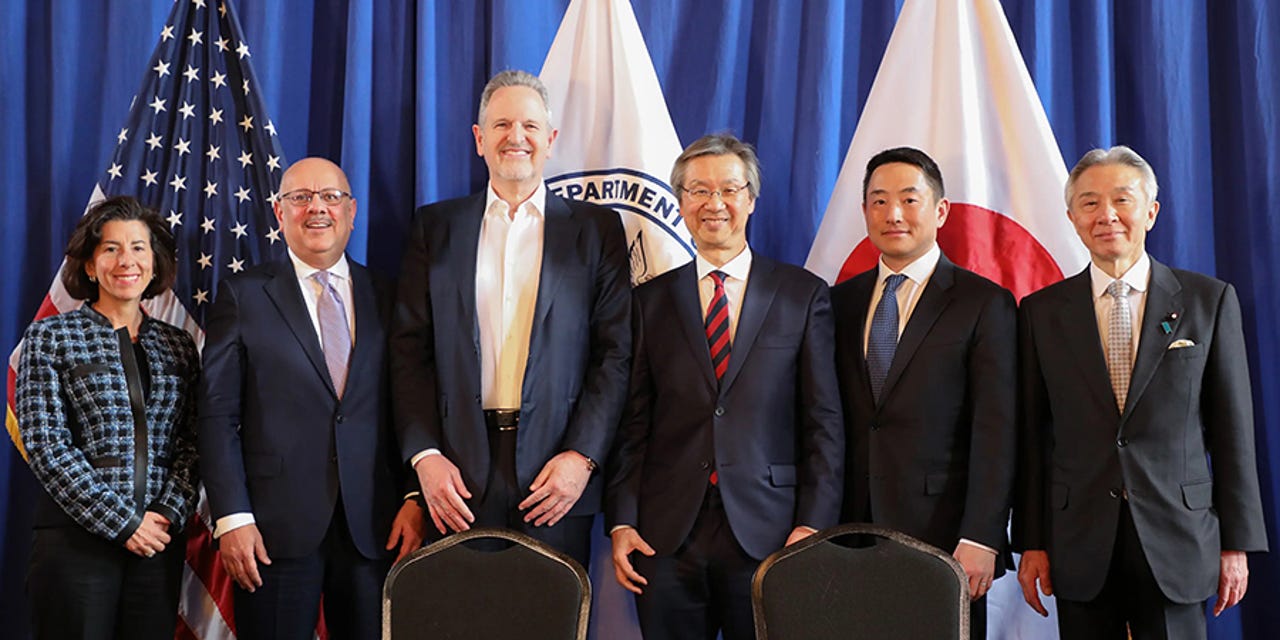
































From left to right, U.S. Secretary of Commerce Gina Raimondo, CMU President Farnam Jahanian, Arm CEO Rene Haas, Keio University Vice President for Research Masayuki Amagai, Microsoft Executive Vice President and Chief Marketing Officer Takeshi Numoto and Japanese Minister of Education, Culture, Sports, Science and Technology Moriyama Masahito.
The US government has been busy lately trying to get its arms around artificial intelligence, and now it's signed an accord with Japan to widen that net.
The US and Japan announced a partnership with a host of US and Japanese companies to fund AI research across both countries. The$110 million research commitment will allow for researchers at the University of Washington and the University of Tsukuba, as well as Carnegie Mellon University and Keio University, to collaborate on large language models, AI workforce development, and more.
"Today's announcement will build on President Biden and Prime Minister Kishida's commitment to advance US-Japan science and technology cooperation to develop a talented global workforce and strengthen economic security in both countries," US Commerce Secretary Gina Raimondo said in a statement.
Also: The White House plans to regulate the government's use of AI
Nvidia, Microsoft, Amazon, Arm, and SoftBank, along with nine unidentified Japanese companies contributed to the fund, the governments said, without specifying how much each company invested.
The move is part of a broader push by the Biden administration to partner with allied governments on AI. Last week, in fact, the administration announced an accord with the UK government meant to allow both countries to share valuable information on AI development, research, and national security.
Meanwhile, the Biden Administration is trying to get ahold of AI usage in the US government and announced in March that every government agency must have a plan in place by December 2024 on safeguards for using AI. If the agencies fail to provide a plan, they'll be banned from using AI in any way.
This most recent agreement is designed to combine the academic prowess of both the US and Japan to improve both governments' understanding of -- and capacity to capitalize on -- artificial intelligence.
The University of Washington and University of Tsukuba have partnered to focus on AI research and workforce development, the governments said. They claim that the universities' locations -- Seattle and Tsukuba -- make them especially capable of developing an understanding in both areas. The Carnegie Mellon University and Keio University partnership, meanwhile, will center on multimodal and multi-lingual machine learning, along with how AI could work in robots, as well as how humans could have "symbiosis" with autonomous AI.
This isn't the first time the US and Japan have partnered on technology research. In May 2022, the US and Japan said they would examine ways to partner on tech development. In May 2023, the countries said that they had secured over$210 million from IBM, Google, and Micron for a similar academic partnership on quantum computing and semiconductors.
 Hot Tags :
Innovation
Hot Tags :
Innovation